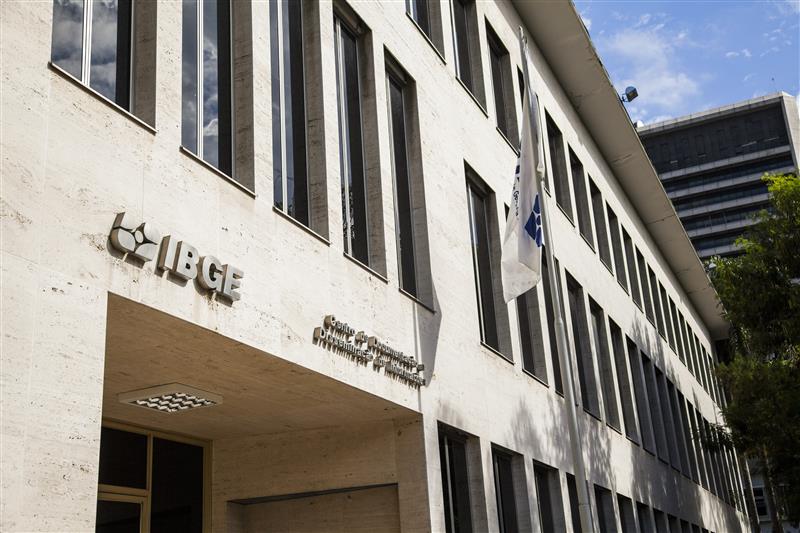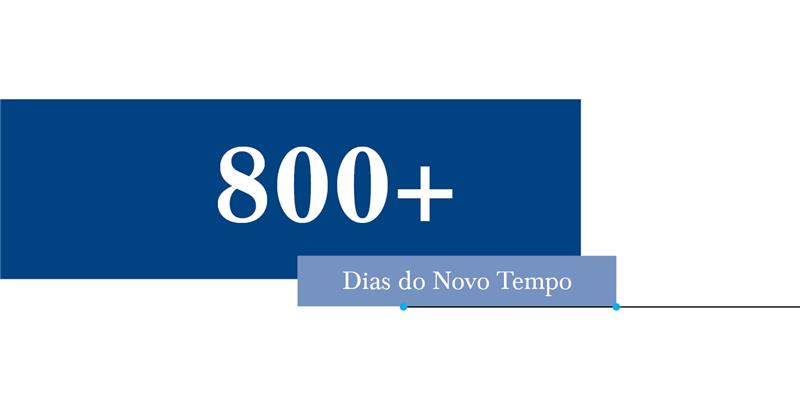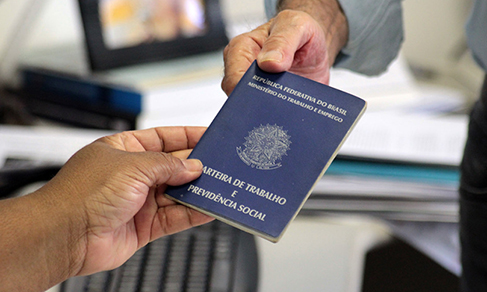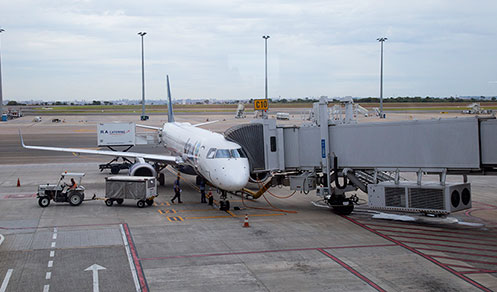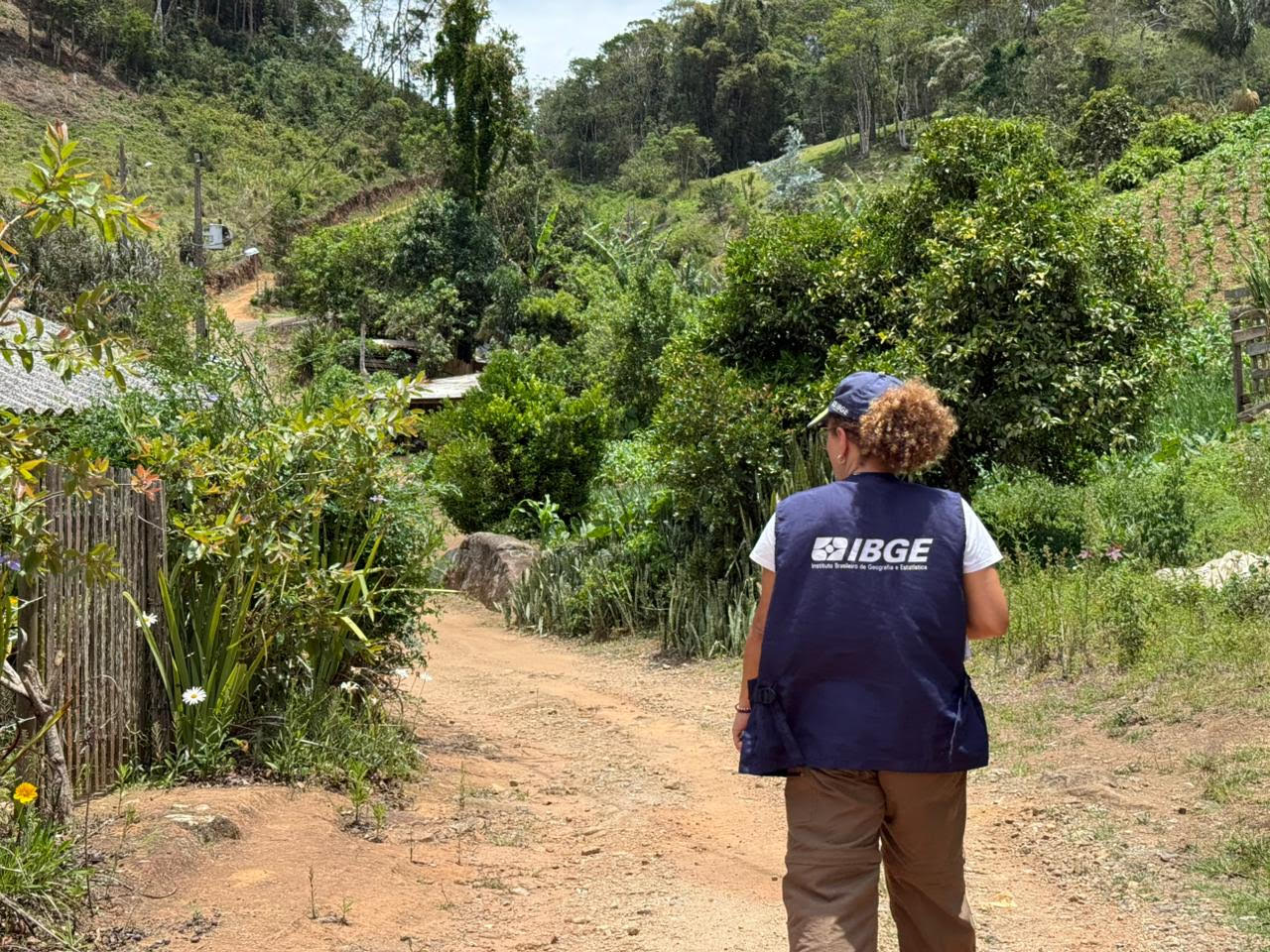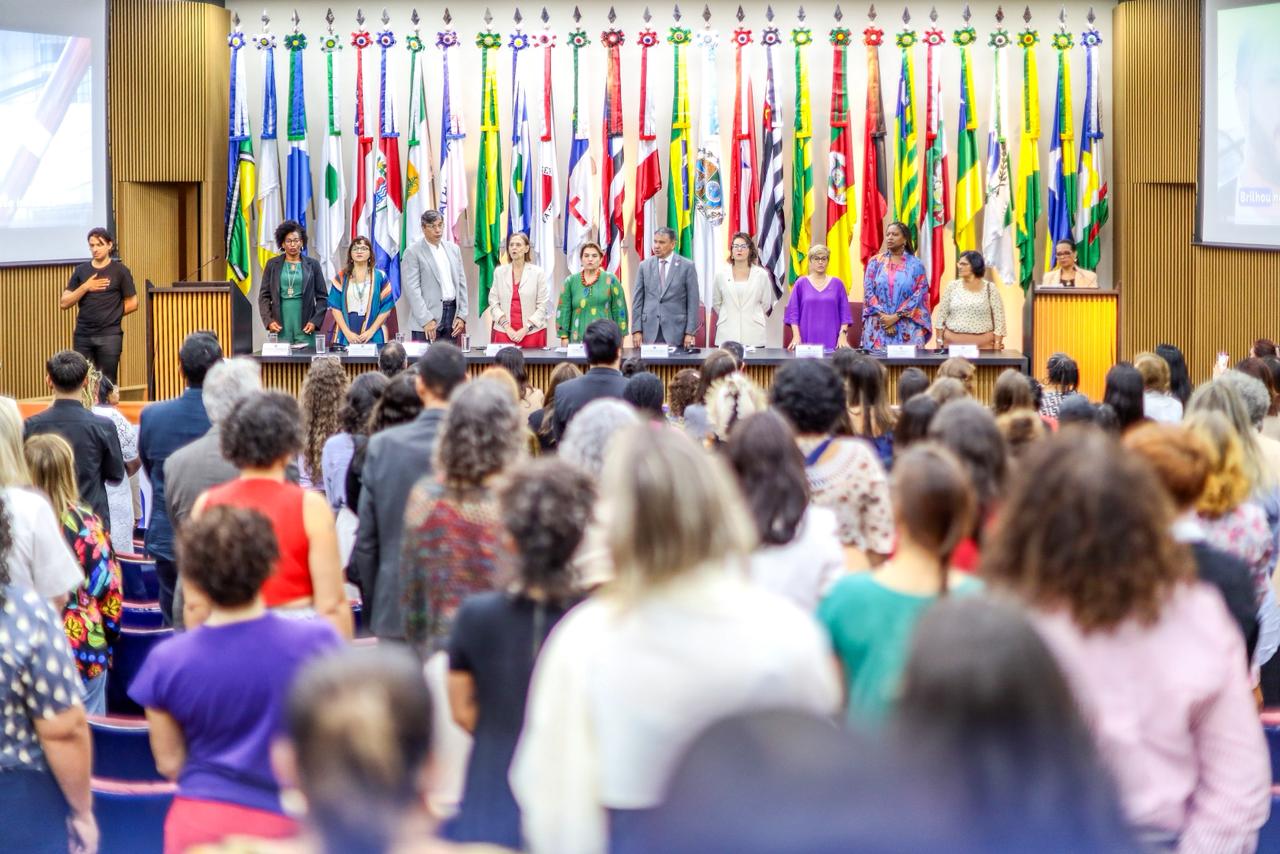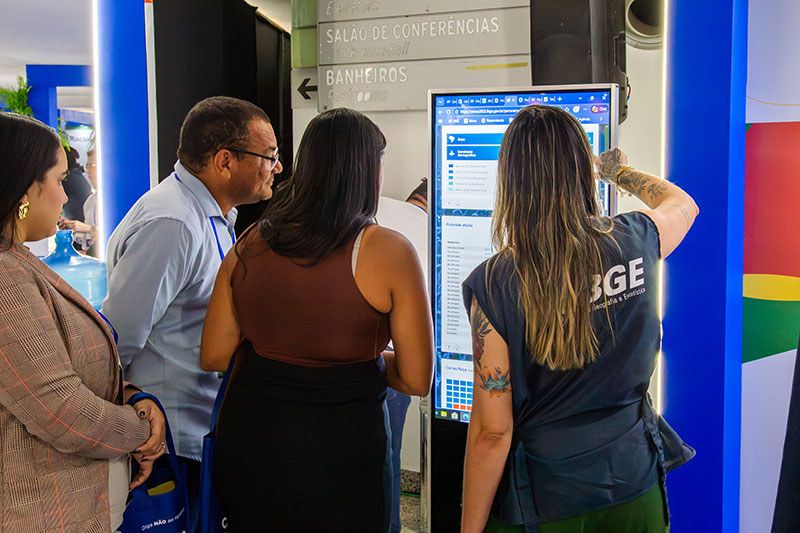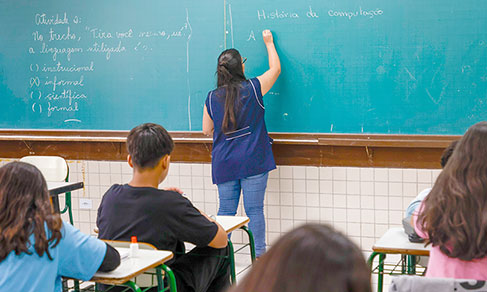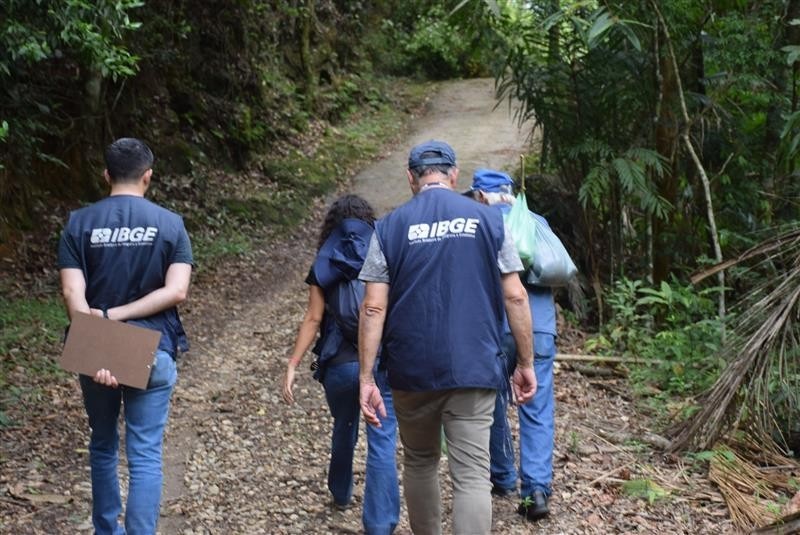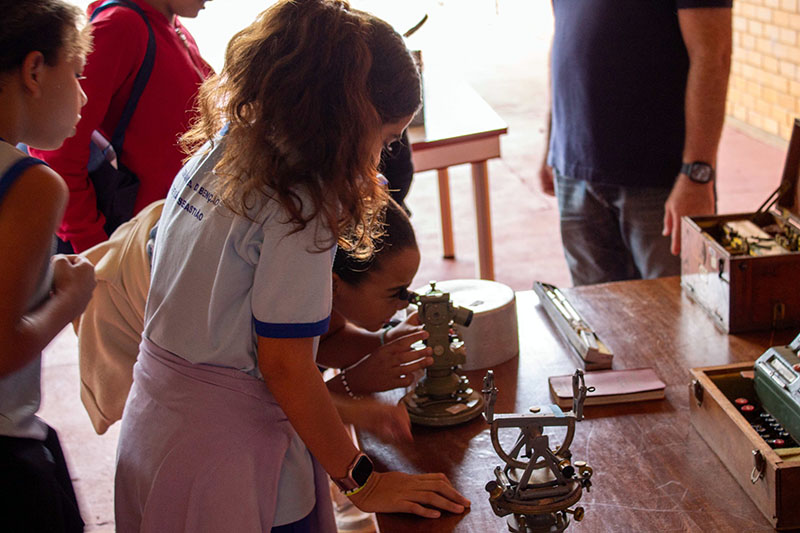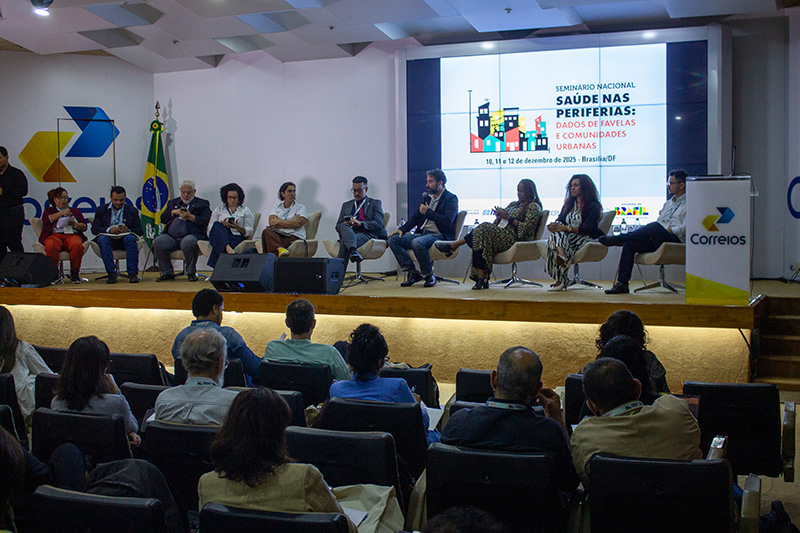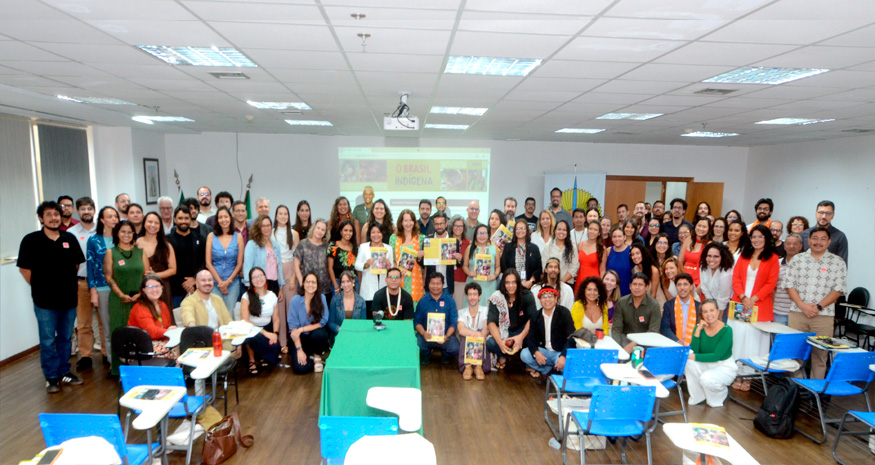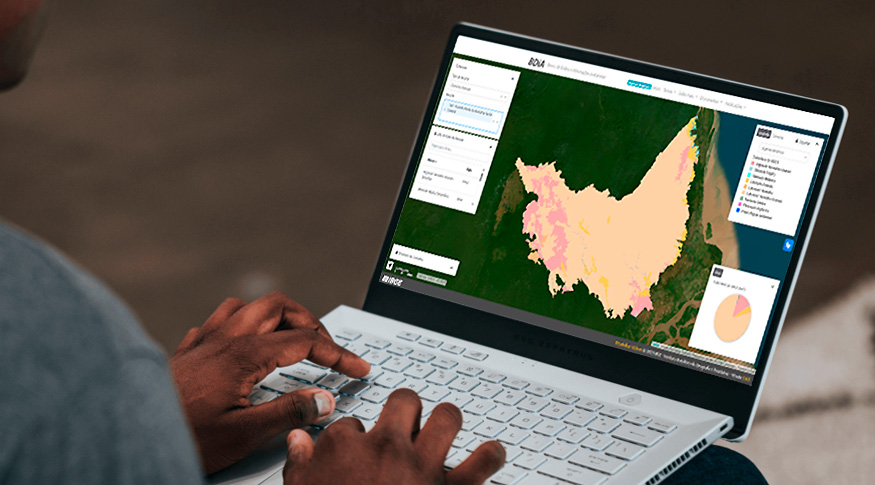IBGE tests survey on the impacts of floods in Rio Grande do Sul
June 26, 2025 04h28 PM | Last Updated: June 27, 2025 01h52 PM
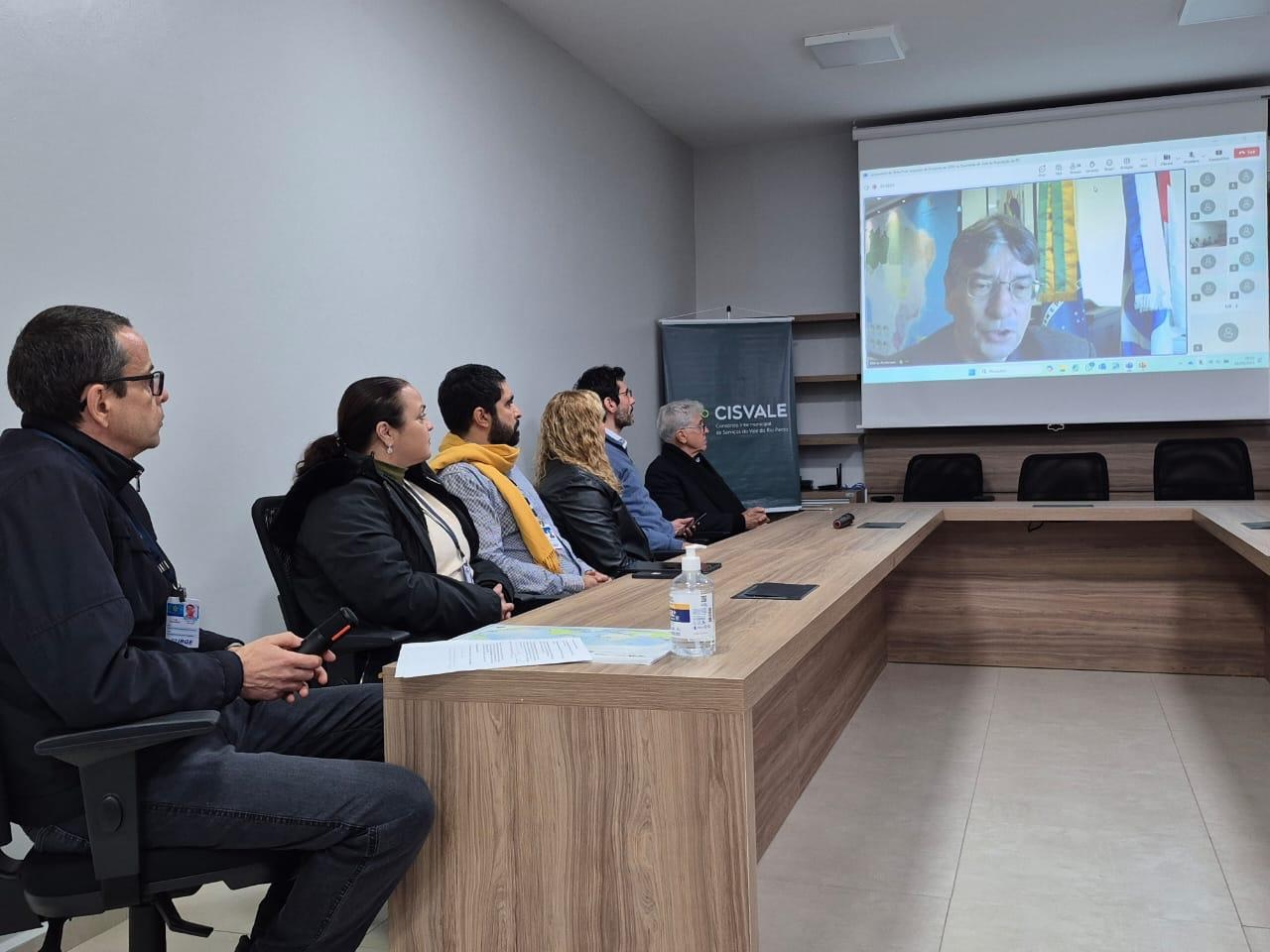
The Brazilian Institute of Geography and Statistics (IBGE) released today (26), in an event at the office of the Intermunicipal Services Consortium of the Vale do Rio Pardo Area (CISVALE), in Santa Cruz do Sul (RS), the final test of the Special Survey on 2024 Floods in Rio Grande do Sul (PEERS), which will be held between June 30 and July 11, by telephone.
The survey is the result of IBGE's participation in the Presidency of the Republic, and gave origin to Singed Lab. PEERS will be collected in the second semester of 2025 and has the objective of showing how people were affected during the floods and, their living conditions a year after the disater.
The event was attended (online) by the president of the IBGE, Marcio Pochmann; the Director of Surveys (DPE), Gustavo Junger; the Deputy Director of Geosciences (DGC), Gustavo de Carvalho Cayres; and the Coordinator of the Environment Division, Maria Luiza Pimenta.
Onsite participants were the Superintendent of Rio Grande do Sul (SES/RS), José Renato Braga de Almeida; the Deputy Director of Surveys (DPE), Vladmir Gonçalves Miranda; the Coordinator of the Center for Computer Assisted Telephone Interviewing (CETAC), Andrea Leonel; the CETAC Supervisor, Thiago Franca; the Analyst of the Division of Population and Social Indicators (COPIS/DPE), Juliana Paiva, and the Deputy Superintendent of SES/RS, Luis Eduardo Azevedo Puchalski, mediator of the meeting.
"This work that was done is an innovation within the IBGE, and we know that environmental issues are here to stay. What happened in the state of Rio Grande do Sul last year was certainly not an occasional event. Unfortunately, we are facing climate change, and the Brazilian government needs to be active and face these changes. This is an important step taken by the IBGE to meet demands that come to us from different parts of the Republic and to make a leap in quality so that we can continue doing what the Institute has been doing for 89 years in its cyclical and structural surveys, but also to respond more immediately to issues like the one," highlighted president Marcio Pochmann.
The Superintendent in Rio Grande do Sul (SES/RS), José Renato Braga de Almeida, stated that, since the calamity occurred, “IBGE has expressed the importance of having this survey and of working on it differently in relation to our data collection processes. We have been preparing this survey since the flood, it is a long-term effort, and the main objective of this event is to have the support and awareness of the residents who are being involved in the test”.
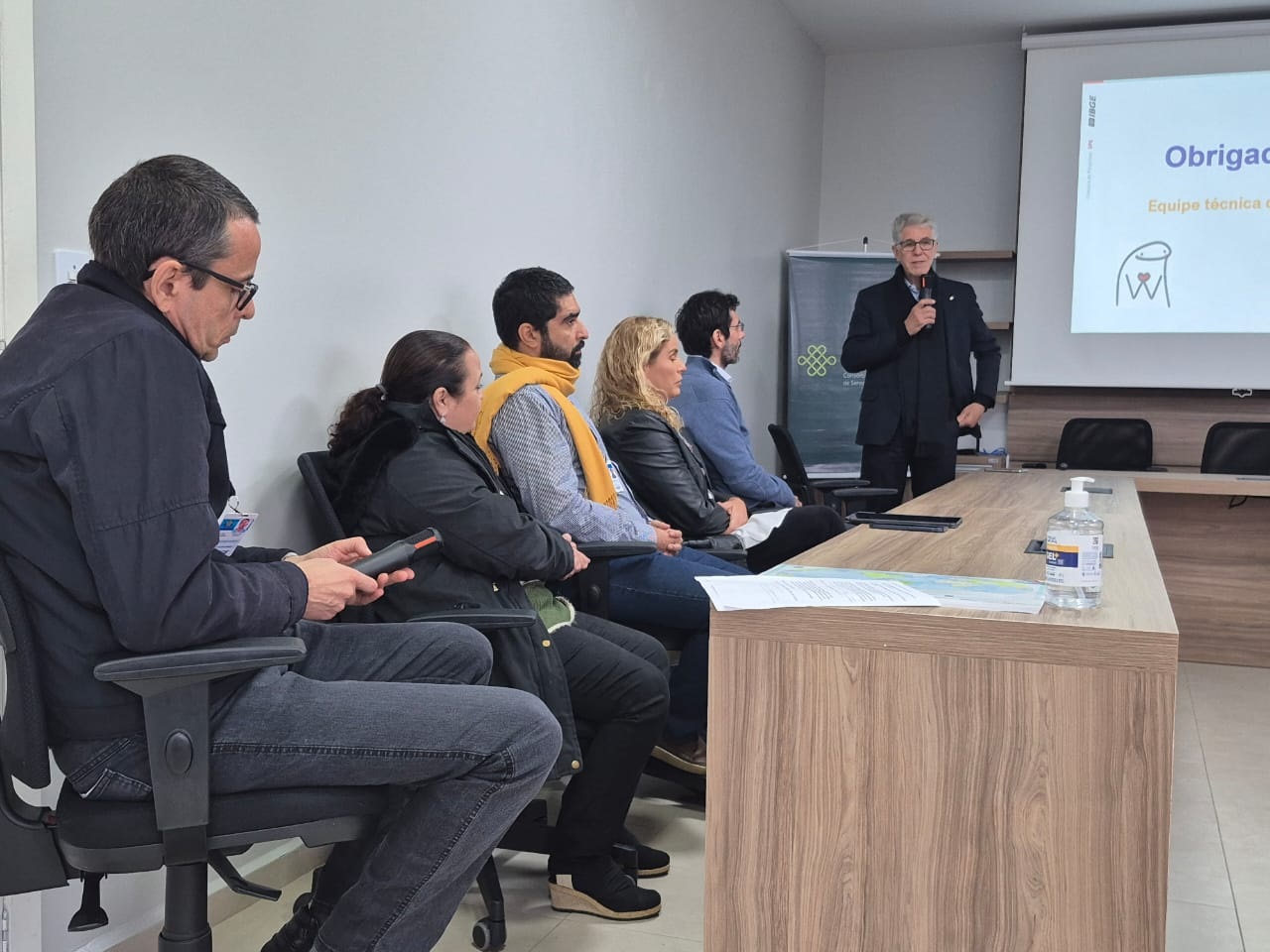
The Director of Surveys, Gustavo Junger, pointed out that there are high expectations on the part of the Directorates of Surveys and Geosciences and all the areas involved, and the survey is the result of a joint effort by all areas of the IBGE. “The IBGE is taking an important step forward today. This methodology can be a reference for other events like this, extreme events that, unfortunately, are expected to happen more frequently. This is an important step, as are others that are being carried out in parallel, including the formation of a Working Group with the participation of different areas of the IBGE so that we can respond more quickly to similar situations, should they occur.”
The Deputy Director of Surveys, Vladmir Gonçalves Miranda, emphasized that the catastrophic effects demand quick and effective responses from the government. “For actions to be more effective, we need fast, comprehensive and reliable data, and that is what the IBGE has been trying to provide.”
“In this event, as in previous ones, IBGE has already participated in a way that demonstrates the institution’s concern in responding to society, especially in extremely grave situations, such as the one in by state of Rio Grande do Sul, and that our colleagues there experienced more intensely. The DGC, particularly now, is concerned and consistently involved in this topic from the perspective of the environment specifically, but not only. This research, developed with great care and attention as a way of responding to this issue, is a source of pride and great expectation,” explained the Deputy Director of Geosciences, Gustavo de Carvalho Cayres.
Maria Luiza Pimenta, Environment Coordinator at the Geosciences Directorate, presented the geoscientific perspective of the survey and stated that “Brazil is the country with the greatest natural diversity of landscapes and diverse socioeconomic characteristics. This national context that we are experiencing in this type of post-disaster assessment is an interactive reflection. In Brazil, we are experiencing changes in the frequency and magnitude of extreme events and these issues are connected to global climate change. We also have, in our country, great inequality in local and regional vulnerability that is distributed differently across the territory. Adding all this together, we are presenting crucial data today.”
SES/RS civil servant Luis Eduardo Azevedo Puchalski mediated the event and pointed out that the survey is the result of IBGE's participation in the task force created by the Presidency of the Republic, which led to the creation of Singed Lab, IBGE's Innovation laboratory.
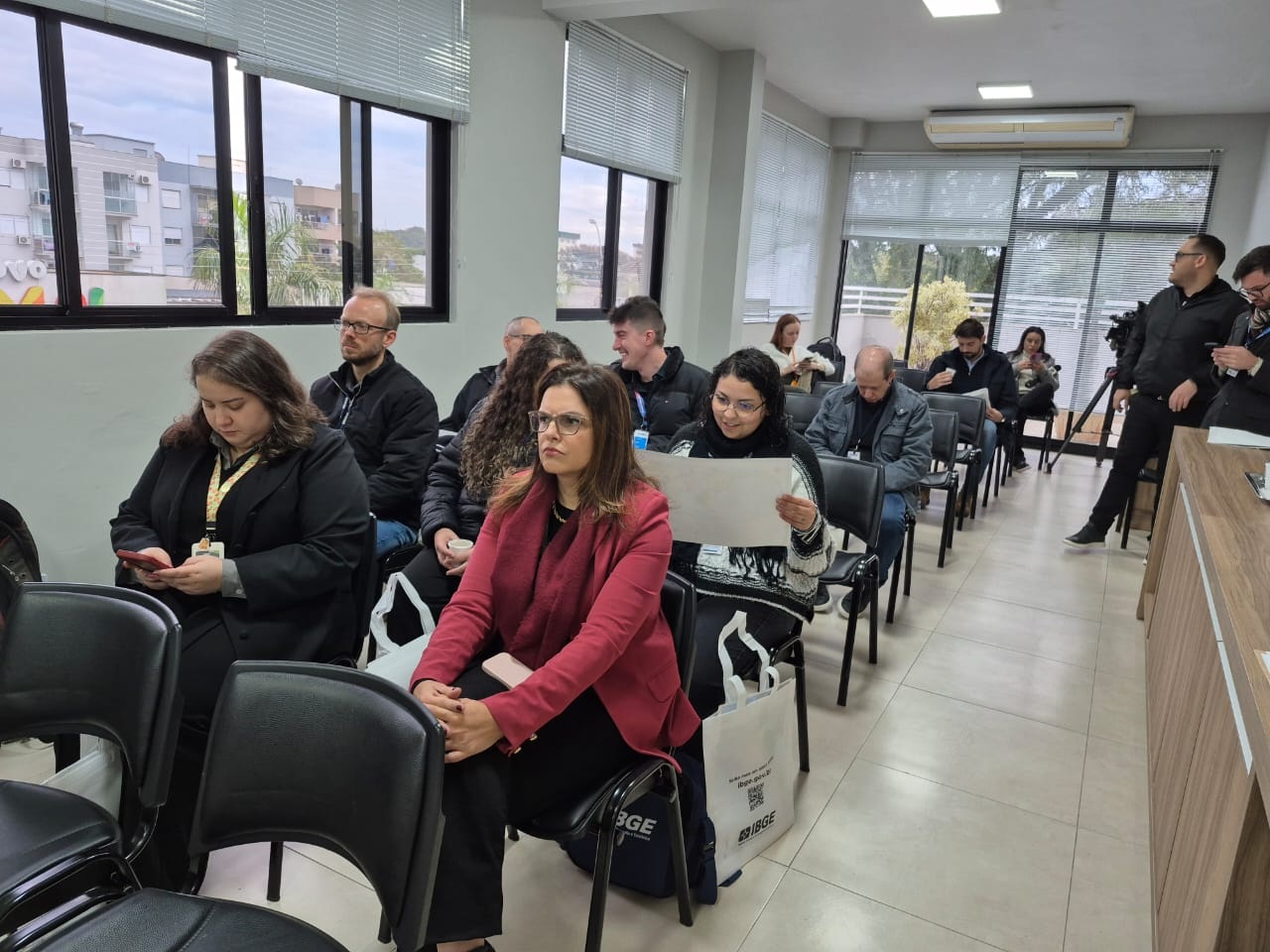
Special Survey on the 2024 Floods in Rio Grande do Sul (PEERS)
The objectives of the Special Survey on the 2024 Floods in Rio Grande do Sul (PEERS) are to advance understanding regarding damages suffered and effectiveness of the actions taken; socioeconomic characteristics at the time of the floods; degree of severity experienced, understanding of the type of support requested and received; and understanding of the living conditions of resident population in municipalities affected both in 2024 and one year after the floods.
The Analyst and Deputy Coordinator of Population and Social Indicators (COPIS/DPE), Juliana Paiva, explained how the Survey Test, which will be available between June 30 and July 11, will work: “the IBGE agent will call the resident, identify oneself and confirm whether they lived in the municipality that was affected. If they say yes, the agent will ask if they experienced the flood. If they did not, were traveling or living somewhere else at the time, they will not answer the questionnaire, but can indicate another person to answer, or reply that they did not live in that municipality, but experienced the flood somewhere else and, thus, can answer the questionnaire.”
The Coordinator of the Computer-Assisted Telephone Interviewing Center (CETAC), Andrea Leonel, stated that “the survey requires reaching the resident, and often, that person is no longer in that municipality. CETAC has 120 survey agents and supervisors, who will make the calls by calling (21) 2142-0123. If the resident wants to confirm the identity of the agent, they can call 0800 721 8181..
The topics covered in the survey questionnaire are: 1- Impacts of floods on homes: flooding and access, physical damage, interruption of water and electricity supply, and damage to vehicles and high-value goods (furniture, household appliances, work equipment, electronic devices); 2- Impacts of floods on the surroundings of homes: damaged homes, flooded streets, closed highways or broken bridges, street conditions (garbage, lighting, security), and public transportation; 3- Household incidents and impacts of floods on the lives of residents: rescue (means of transportation used, people responsible for the rescue), emergency aid (first aid, food or water), medical care and hospitalization/health unit, evacuation, damage/loss of documents, transportation (work/school/daycare or health services), social life and coexistence with family or friends, and physical or mental health.
Other topics in the questionnaire are: 4- Profile of the affected population: date of birth/age, color or race, level of education, current place of residence and reason for moving, household income in April 2024; 5- Education and work before and after the floods; 6- Assessment of quality of life (whether it worsened or improved after the floods): access to health and internet, water and electricity supply, waste ddisposal, street cleaning, water drainage, sewage and public transportation; 7- Public financial aid related to floods; and 8- Prevention and recovery.
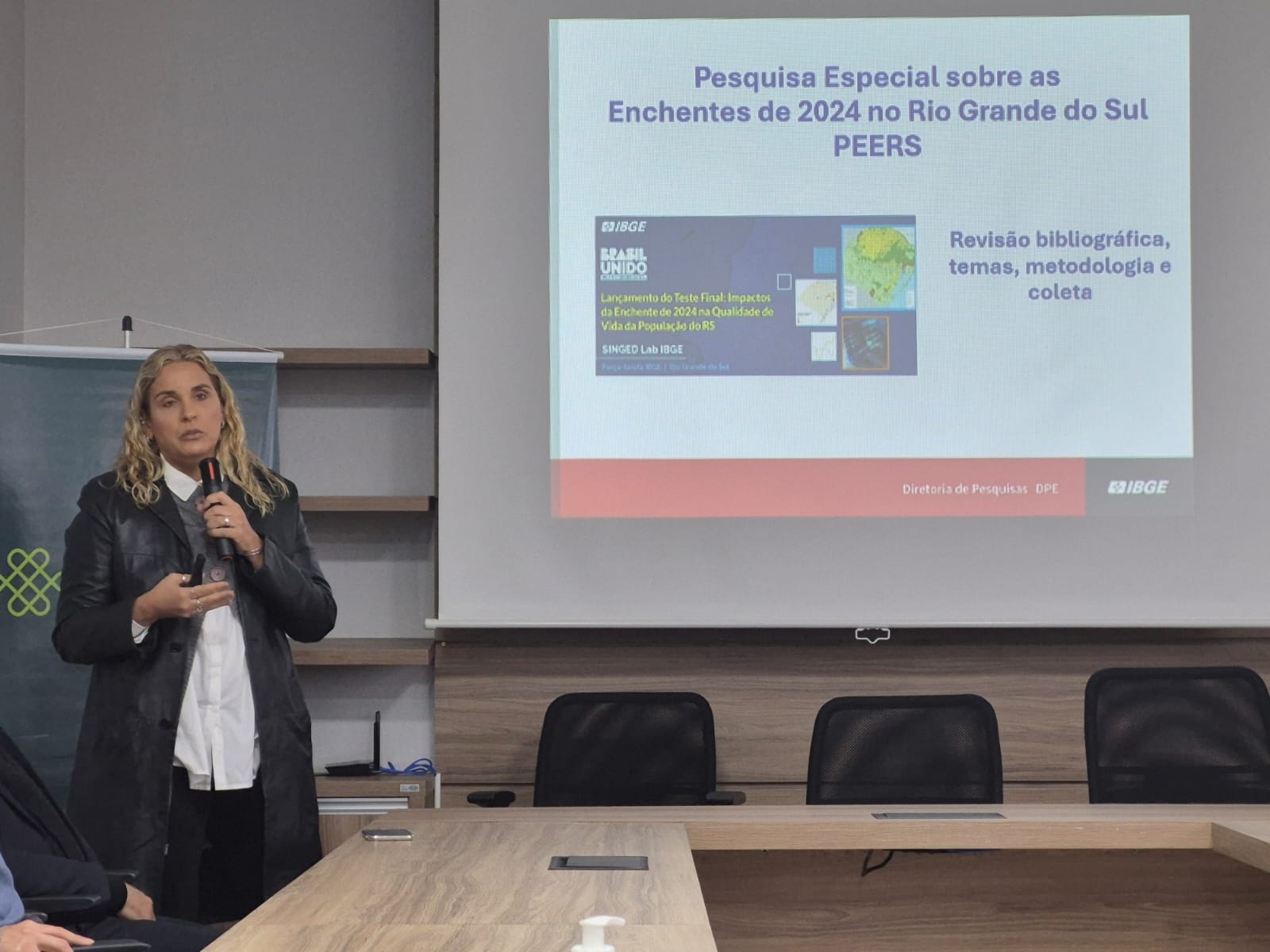
CETAC Supervisor Thiago Franca presented the content and restated that as soon as the resident answers the phone, the agent will confirm the identity of that person and identify whether or not they meet the criteria to respond to the survey. The questionnaire can be answered by the original informant, who will provide information of 2024 on all residents at the time and of 2025 on those who still live with the informant, or by a complementary informant, who no longer lives with the original informant but will provide information of the current days.
The 2024 floods in Rio Grande do Sul affected different socioeconomic segments of the population. References for developing the survey include recommendations by the Statistical Commission and the World Bank; international experiences with other climate events; and samples of 2022 Population Census households through the telephone.





